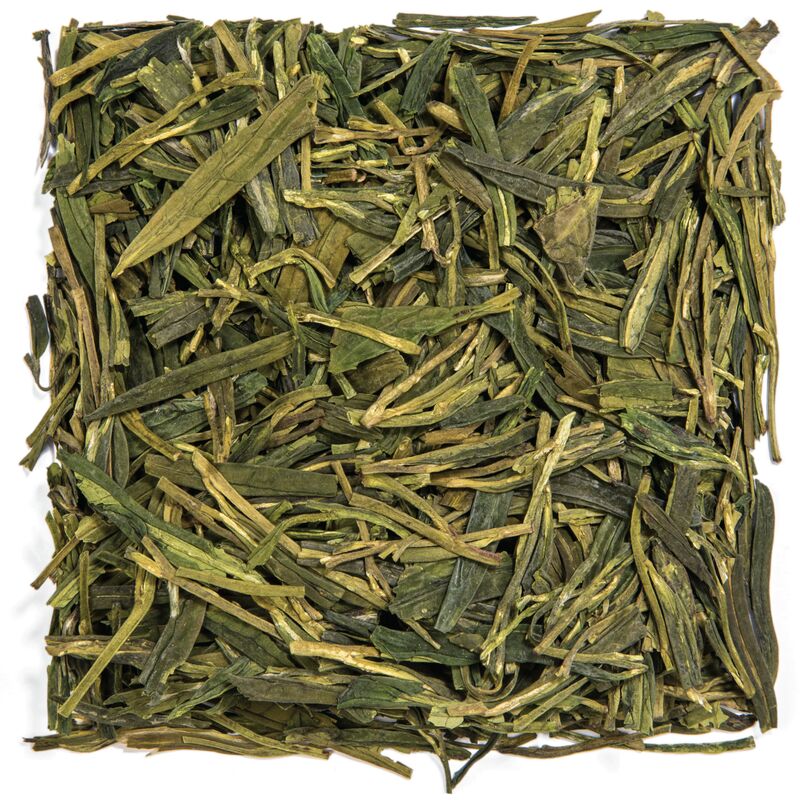WHAT IS GREEN TEA?
To best understand green tea, we have to look at tea in general. Most people drink black tea or variations of it. Others like to sip on oolong tea, and some people prefer the white variety of tea. What are the differences, and what makes green tea so healthy?
Tea comes from the leaves of the Camellia Sinensis bush. The plant comes in two varieties. One grows in China and is used for green and white teas.
The second type of bush is found in India and is used for both oolong and black tea.
All tea comes from the same plant, Camellia sinensis, but the leaves are processed differently to make green, black, and oolong tea, according to the National Center for Complementary and Integrative Health (NCCIH). Green tea leaves are not allowed to oxidize, which accounts for their fresh, almost grassy flavor. Of the four types of tea, green tea has the most flavonoids, which are plant-based antioxidant chemicals. Green tea is the least oxidized when processed, and that is why it is touted as the most beneficial.
Tea has been well studied for its health benefits, particularly green tea.
10 Evidence-Based Benefits of Green Tea
1. Contains healthy bioactive compounds: Green tea is loaded with polyphenol antioxidants, including a catechin called EGCG. These antioxidants can have various beneficial effects on health.
2. May improve brain function: Green tea contains less caffeine than coffee but enough to produce an effect. It also contains the amino acid L-theanine, which can work synergistically with caffeine to improve brain function.
3. Increases fat burning: Green tea may boost metabolic rate and increase fat burning in the short term, although not all studies agree.
4. Antioxidants may lower the risk of some cancers: Green tea has powerful antioxidants that may protect against cancer. Multiple studies show that green tea drinkers have a lower risk of various types of cancer.
5. May protect the brain from aging: The bioactive compounds in green tea can have various protective effects on the brain. They may reduce the risk of dementia, a common neurodegenerative disorder in older adults.
6. May reduce bad breath: The catechins in green tea may inhibit the growth of bacteria in the mouth, reducing the risk of bad breath.
7. May help prevent type 2 diabetes: Some controlled studies show that green tea may cause mild reductions in blood sugar levels. It may also lower the risk of type 2 diabetes.
8. May help prevent cardiovascular disease: Green tea may lower total and LDL (bad) cholesterol, as well as protect the LDL particles from oxidation. Studies show that people who drink green tea have a lower risk of cardiovascular disease.
9. May help you lose weight: Some studies show that green tea may lead to increased weight loss. It may be particularly effective at reducing the dangerous abdominal fat.
10. May help you live longer: Studies show that people who drink green tea may live longer than those who don’t.
Studies showed that green tea may be helpful in “prevention of cancer and cardiovascular diseases” and has the “anti-inflammatory, antiarthritic, antibacterial, antiangiogenic, antioxidative, antiviral, neuroprotective, and cholesterol-lowering effects.[1]” Scientists usually link health benefits to tea consumed over a long-term period rather than just a single occasional cup. Green tea has a range of possible health benefits. To help you feel better, lose weight, and lower your risk of chronic diseases, you may want to consider making green tea a regular part of your life.
HOW MUCH GREEN TEA SHOULD YOU DRINK A DAY?
Studies have not been conclusive on how much green tea to drink a day to reap the maximum benefit. It really depends on the person and their own personal health. Different amounts of green tea every day will benefit you in various ways.
For example, in controlled studies, those who drank one to three cups each day had a lower risk of stroke and heart disease than subjects who drank less than one cup. And stomach cancer was less likely to develop in women who consumed over 5 cups daily. Green tea might help with digestion and boosting metabolism. Although there are no specific guidelines when you should take your tea, the best time might be before or 30-60 minutes after the meal. To get the most benefits, studies usually suggest 3-5 cups of green tea per day, depending on the type and the amount of EGCg. Learn how to choose the tea with the most EGCg. Both a before and after workout cup of tea has its own benefits. A pre-workout cup may help losing weight, increasing endurance and focus, while a post-workout cup will refresh and replenish your body.
But, we have to look at it this way – how much you consume depends on how much you can tolerate. Not everyone wants to drink 5 cups in 24 hours. Adding green tea to your diet is beneficial, but as long as you are drinking a cup or more a day, that’s great!
HOW TO BREW GREEN TEA?
The right temperature for brewing green tea should be 160-180 degree in Fahrenheit (about 70-80 degree in Celsius). Green tea is known to be very delicate and thus it should steep for just 2-3 minutes. Do not let it steep for more than 3 minutes as it will make your green tea bitter. While it is important to have the right temperature of water and the right time for steeping, it is equally important to add the right amount of green tea while brewing. However, depending on your taste, you can tweak the amount of tea leaves. An ideal ratio is to add 2 grams of green tea leaves in a half cup of water.
References:
[1] https://www.ncbi.nlm.nih.gov/pmc/articles/PMC2855614/


